Understanding the importance of affordability in homeownership is vital to making a well-informed decision. Purchasing a home is a significant milestone, but ensuring that the investment aligns with your financial situation is crucial. When considering how much you can afford to spend on real estate, several factors come into play, and it’s essential to evaluate each one carefully. By assessing these factors, you can better understand your financial capabilities and make a more informed decision about the type and size of the home you can comfortably afford.

Assessing Your Financial Situation
Calculating Your Income: Start by gathering all sources of income, including salary, bonuses, freelance work, rental income, and others. Consider regular and irregular income streams to determine available funds for saving, investing, and expenses.
Evaluating Your Debt-to-Income Ratio: Compare monthly debt payments to monthly income. Add up all debt obligations, such as mortgage or rent payments, credit card bills, and loans. Divide the total by income, multiply by 100, and get a percentage. A lower ratio indicates better financial health and manageable debt levels.
Determining Your Down Payment Ability: Assess your financial situation to determine the amount you can comfortably allocate for a down payment. Consider savings, investments, and available funds. A larger down payment can reduce mortgage payments and improve loan terms.
Factoring in Other Financial Obligations: Account for recurring expenses like utilities, insurance, healthcare, and transportation. Include savings goals, retirement contributions, and emergency funds. Evaluating these obligations ensures that homeownership remains financially feasible.
Understanding Mortgage Options
Fixed-Rate Mortgages: Fixed-rate mortgages offer stability and predictability with a constant interest rate lasting throughout the loan term. Terms range from between 10 and 30 years, with popular options at 10, 15, and 30 years. Monthly payments remain the same, providing budgeting ease and protection against interest rate fluctuations.
Adjustable-Rate Mortgages: Unlike fixed-rate mortgages, adjustable-rate mortgages (ARMs) have changing interest rates. They start with a fixed rate for an introductory period, then adjust based on a predetermined financial index. ARMs can benefit those planning to sell or refinance before the initial period ends but carry the risk of potential rate increases.
Government-Backed Mortgage Programs: These programs, insured or guaranteed by government entities, provide affordable homeownership options. They have flexible qualification requirements, lower down payment options, and competitive rates. Examples include FHA loans for first-time homebuyers, VA loans for veterans and active-duty military, and USDA loans for rural areas.
Estimating Monthly Housing Costs
Principal and interest payments: These are fixed for the duration of a fixed-rate mortgage and can be estimated using a mortgage calculator with the loan amount, interest rate, and term.
Property taxes and insurance: Homeowners are responsible for these costs, typically included in the mortgage payment through an escrow account managed by the lender. Property taxes are based on assessed value, while insurance protects against damage or loss.
Homeowners Association (HOA) fees: HOA fees cover shared expenses in communities governed by an HOA. The amount varies and should be factored into monthly housing costs.
Maintenance and repairs: Not included in the mortgage payment, these costs should be considered. Setting aside a portion of the monthly budget is recommended to handle unforeseen expenses.
Additional Costs to Consider
Closing Costs: Closing costs are the expenses accrued during a real estate transaction, paid by buyers and sellers. These fees include loan origination fees, appraisal fees, title searches, title insurance, surveys, taxes, deed recording fees, and credit report charges. Closing costs vary based on location and property value. Buyers typically pay 3-6% of the purchase price, while sellers may pay higher costs, around 8-10% of the sale price.
Home Inspection and Appraisal Costs: A home inspection and appraisal are required when buying a home. A home inspection assesses the property’s condition and identifies any issues, with costs varying based on size and location. An appraisal determines the property’s market value; fees depend on size, type, and location. Buyers usually cover these fees to ensure property value and condition.
Moving Expenses: Moving expenses include hiring movers, renting trucks, buying packing supplies, and storage fees. Costs depend on distance, belongings, and additional services. Getting quotes from multiple movers helps plan and budget for these expenses

Tips for Affording a House
Saving for a Down Payment: Prioritize paying off debt before saving. Allocate income towards debt repayment. Increase the down payment amount to impact mortgage size. Save in high-interest accounts and automate transfers. Budget and reduce expenses to save more.
Improving Your Credit Score: Timely payments and debt reduction improve your credit score. Monitor credit reports for errors. Maintain good credit history and avoid new debt.
Reducing Debt and Managing Expenses: Pay off high-interest debts first. Analyze expenses, cut back, and redirect savings. Consider side hustles for additional income. Create a budget and track progress.
Exploring First-Time Homebuyer Programs: Research and explore available programs. Make homeownership affordable and accessible. Benefits include down payment assistance and reduced rates.
Seeking Professional Advice
Working with a Professional, Qualified Real Estate Agent: When buying or selling a home, it is best to work with a real estate agent. Real estate agents have the expertise and knowledge to guide clients through the transaction process. They act in the best interests of their clients and provide professional advice with honesty, fidelity, and integrity. Real estate consultants provide specialized guidance based on extensive research and industry expertise. Unlike real estate agents, consultants may be paid a flat or hourly rate for their services. Collaborating with a real estate agent or consultant can ensure a smooth and informed real estate experience.
Consulting with a Mortgage Lender: When considering homeownership, consulting with a mortgage lender is crucial. Mortgage lenders guide the financing aspect of purchasing a home. They assess the borrower’s financial situation, offer advice on loan options, and help determine a suitable mortgage amount. By consulting with a mortgage lender, individuals can gain insight into their borrowing capacity, down payment requirements, and affordability factors, enabling them to make informed decisions about their home purchases.
Conclusion
Understanding the importance of affordability in homeownership is vital to making a well-informed decision. By assessing your financial situation, including income, debt-to-income ratio, down payment ability, and other financial obligations, you can determine your budget and ensure homeownership remains financially feasible.
Familiarizing yourself with different mortgage options, such as fixed-rate and adjustable-rate mortgages, as well as government-backed programs, allows you to choose the most suitable financing option.
Estimating monthly housing costs, including principal and interest payments, property taxes, insurance, HOA fees, and maintenance expenses, helps you develop a comprehensive understanding of your financial obligations.
It’s essential to consult professionals, such as lenders and real estate agents, who can provide accurate estimates and personalized guidance. Additionally, considering additional costs like closing costs, home inspection and appraisal fees, and moving expenses is crucial in budgeting effectively.
By following these steps and seeking professional guidance, you can make a confident and well-informed decision about your homeownership journey.
Contact Jackie Ruden Realty Team
Give us a call today at (435) 272-7710 to set up a time to discuss your current and future real estate goals in regards to buying a home or buying a property in trust. We look forward to working with you to make your goals a reality.





